
Wexford: A Quaint Irish Gem by the Sea
Wexford, a charming coastal town in Ireland, is a delightful blend of rich history, vibrant culture, and scenic landscapes. Nestled in the southeastern corner of the Emerald Isle, this picturesque town has something for everyone. From its medieval streets to its stunning beaches, Wexford is a perfect destination for those seeking both relaxation and adventure. The town's history dates back to the Viking era, and evidence of its storied past can be seen in the well-preserved ruins and ancient churches scattered throughout. A visit to the Irish National Heritage Park offers a fascinating journey through 9,000 years of Irish history, with immersive exhibits and live demonstrations bringing the past to life. Wexford's historic sites, like the 12th-century Selskar Abbey and the 13th-century Hook Lighthouse, provide a glimpse into the town's rich heritage. For nature lovers, Wexford boasts some of Ireland's most beautiful coastal scenery. The Wexford Wildfowl Reserve is a haven for birdwatchers, while Curracloe Beach, with its golden sands and clear waters, is perfect for a relaxing day by the sea. The nearby Raven Nature Reserve offers tranquil woodland walks and stunning views over the coastline. Wexford is also known for its lively arts scene and annual festivals. The Wexford Festival Opera, held every October, attracts visitors from around the world with its world-class performances. The town's vibrant arts community can be explored through its galleries, theaters, and local craft shops, offering a taste of the area's creative spirit. With its warm hospitality, rich history, and breathtaking landscapes, Wexford is a must-visit destination on any trip to Ireland. Whether you're exploring ancient ruins, enjoying a day at the beach, or immersing yourself in the local culture, Wexford promises an unforgettable experience.
Local tips in Wexford
- Visit the Irish National Heritage Park early to avoid crowds and get the most out of the interactive exhibits.
- Check the tide times before heading to Curracloe Beach to enjoy the best of the sandy shores.
- Book tickets for the Wexford Festival Opera in advance, as performances often sell out quickly.
- Take a guided tour of the Hook Lighthouse for fascinating stories and breathtaking views.
- Explore the local markets for unique crafts and souvenirs, especially on weekends.
Wexford: A Quaint Irish Gem by the Sea
Wexford, a charming coastal town in Ireland, is a delightful blend of rich history, vibrant culture, and scenic landscapes. Nestled in the southeastern corner of the Emerald Isle, this picturesque town has something for everyone. From its medieval streets to its stunning beaches, Wexford is a perfect destination for those seeking both relaxation and adventure. The town's history dates back to the Viking era, and evidence of its storied past can be seen in the well-preserved ruins and ancient churches scattered throughout. A visit to the Irish National Heritage Park offers a fascinating journey through 9,000 years of Irish history, with immersive exhibits and live demonstrations bringing the past to life. Wexford's historic sites, like the 12th-century Selskar Abbey and the 13th-century Hook Lighthouse, provide a glimpse into the town's rich heritage. For nature lovers, Wexford boasts some of Ireland's most beautiful coastal scenery. The Wexford Wildfowl Reserve is a haven for birdwatchers, while Curracloe Beach, with its golden sands and clear waters, is perfect for a relaxing day by the sea. The nearby Raven Nature Reserve offers tranquil woodland walks and stunning views over the coastline. Wexford is also known for its lively arts scene and annual festivals. The Wexford Festival Opera, held every October, attracts visitors from around the world with its world-class performances. The town's vibrant arts community can be explored through its galleries, theaters, and local craft shops, offering a taste of the area's creative spirit. With its warm hospitality, rich history, and breathtaking landscapes, Wexford is a must-visit destination on any trip to Ireland. Whether you're exploring ancient ruins, enjoying a day at the beach, or immersing yourself in the local culture, Wexford promises an unforgettable experience.
When is the best time to go to Wexford?
Iconic landmarks you can’t miss
Hook Lighthouse
Explore Hook Lighthouse, a historic gem on Ireland's scenic coast, where maritime history meets breathtaking views and cultural heritage.

Irish National Heritage Park
Explore Ireland's ancient heritage at the Irish National Heritage Park, a captivating journey through history in Wexford's stunning landscape.
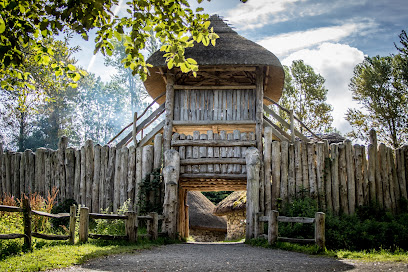
Dunbrody Famine Ship Experience
Discover the heart-wrenching stories of Irish emigration aboard the Dunbrody Famine Ship Experience in New Ross, Wexford.
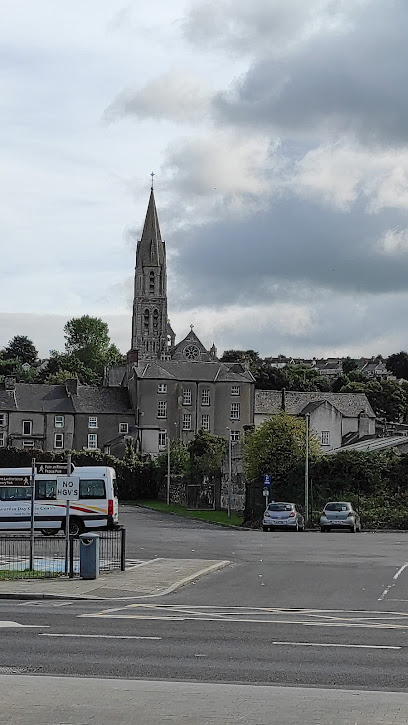
Wells House & Gardens
Discover the beauty of Wells House & Gardens, a historic estate in County Wexford, featuring stunning gardens and rich heritage experiences.
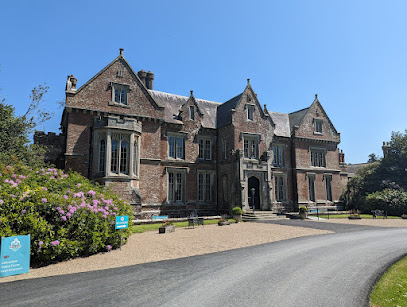
Johnstown Castle Estate, Museum & Gardens
Explore the majestic Johnstown Castle Estate, Museum & Gardens in County Wexford, where history, nature, and beauty intertwine for an unforgettable experience.
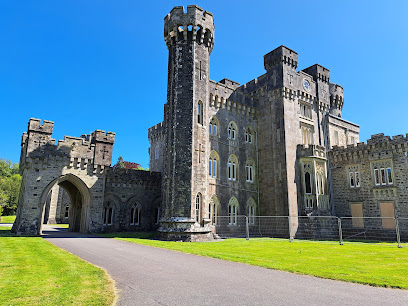
John F Kennedy Arboretum
Explore the lush landscapes of the John F Kennedy Arboretum in County Wexford, a tranquil haven of global flora and stunning vistas.
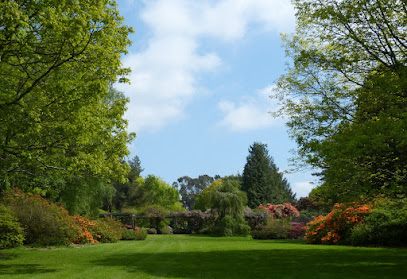
National Opera House
Experience the artistic brilliance of the National Opera House in Wexford, where culture and creativity come alive in a stunning architectural setting.
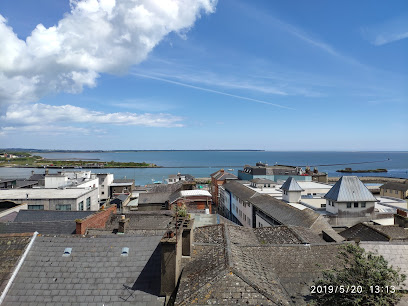
Tintern Abbey
Explore the enchanting Tintern Abbey, a historical landmark in Wexford, Ireland, surrounded by natural beauty and rich monastic heritage.
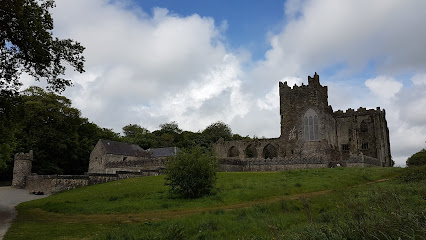
Simon Lambert & Sons
Experience the flavors of Ireland at Simon Lambert & Sons, Wexford's premier gastropub, offering a delightful fusion of traditional and modern cuisine.
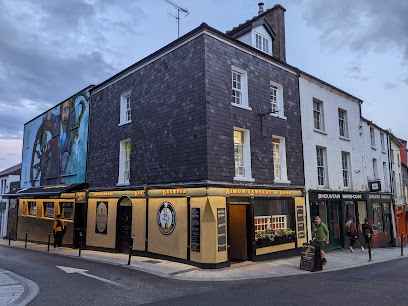
Enniscorthy Castle
Explore the enchanting Enniscorthy Castle, where history and breathtaking views await in the heart of County Wexford, Ireland.
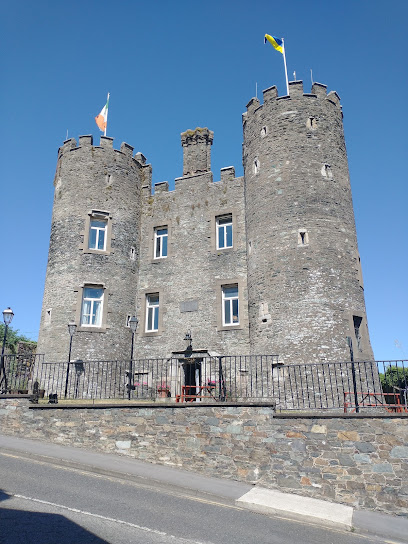
The Raven Nature Reserve
Discover the stunning beauty of The Raven Nature Reserve in Co. Wexford, a perfect blend of coastal charm and tranquil woodland.
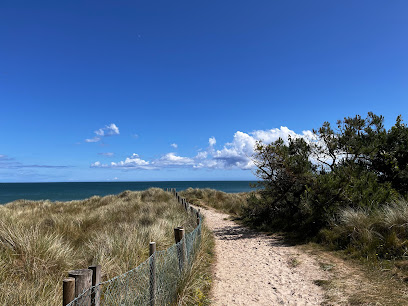
Ramen
Discover the vibrant flavors of Asian Fusion cuisine at Ramen in Wexford, where each dish is a culinary masterpiece waiting to be savored.
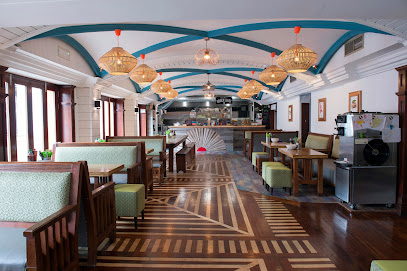
Thomas Moore Tavern
Discover the vibrant atmosphere of Thomas Moore Tavern in Wexford, where traditional Irish cuisine, live music, and warm hospitality await.
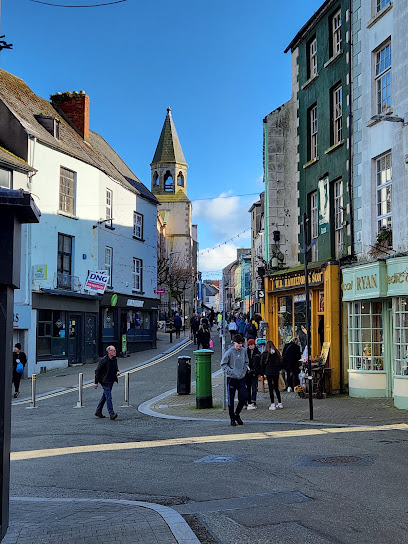
Johnstown Castle
Explore Johnstown Castle: A historical gem in County Wexford, surrounded by stunning gardens and rich Irish heritage.
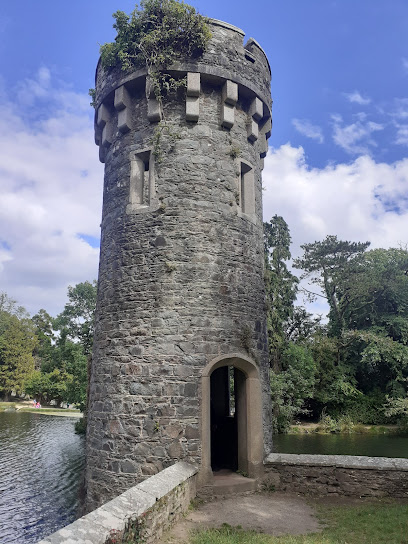
The Kennedy Homestead
Explore the rich heritage of the Kennedy family at The Kennedy Homestead, a serene destination in Co. Wexford, Ireland, celebrating history and culture.
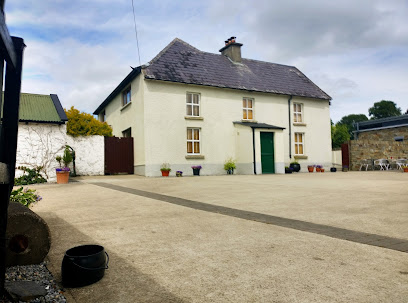
Unmissable attractions to see
Hook Lighthouse
Explore the ancient Hook Lighthouse, a historic landmark offering breathtaking coastal views and rich maritime heritage in County Wexford, Ireland.
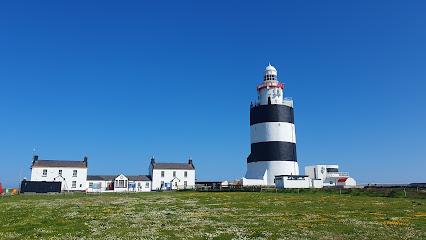
House of Waterford
Explore the enchanting world of Waterford Crystal at the House of Waterford—a celebration of craftsmanship and artistic heritage in Ireland.
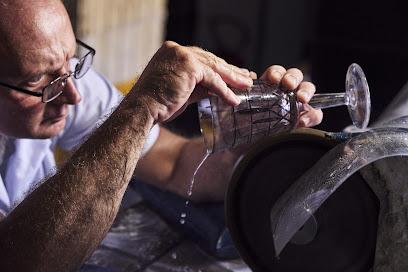
Irish National Heritage Park
Explore Ireland's rich history and culture at the Irish National Heritage Park, a captivating outdoor museum in Wexford.
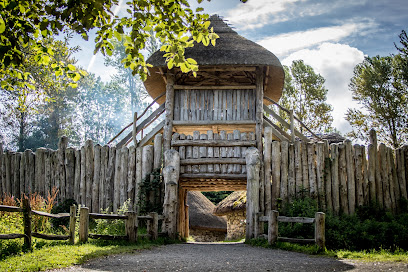
Dunbrody Famine Ship Experience
Explore the emotional journey of Irish emigrants at the Dunbrody Famine Ship Experience, a vital piece of history in New Ross, Co. Wexford.
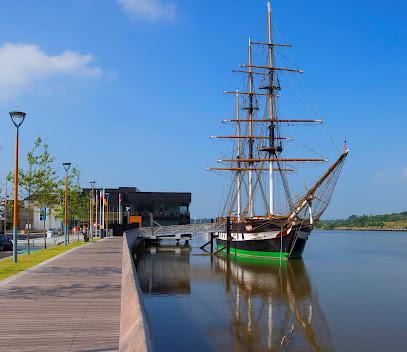
Dunbrody Famine Ship Experience
Explore the Dunbrody Famine Ship Experience and delve into the poignant history of Irish emigration during the Great Famine.
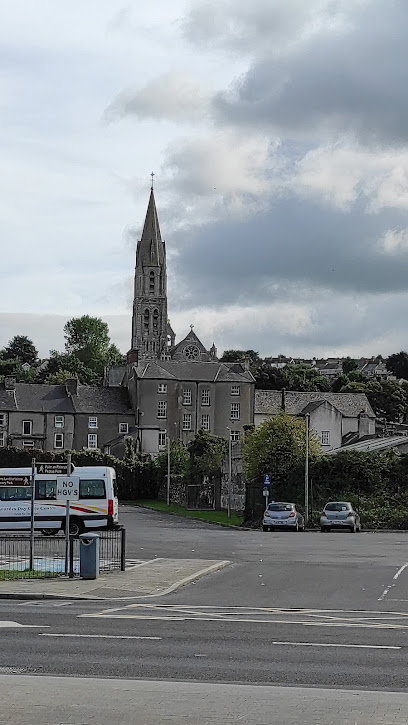
Wells House & Gardens
Explore the historical charm and natural beauty of Wells House & Gardens, a perfect getaway for families and nature lovers in Co. Wexford.
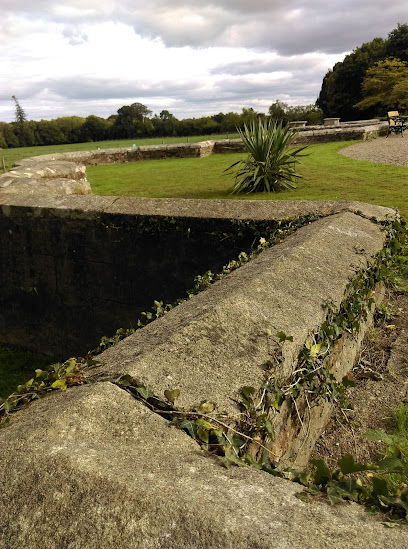
Johnstown Castle Estate, Museum & Gardens
Explore the enchanting gardens, rich history, and cultural treasures of Johnstown Castle Estate, Museum & Gardens in County Wexford, Ireland.
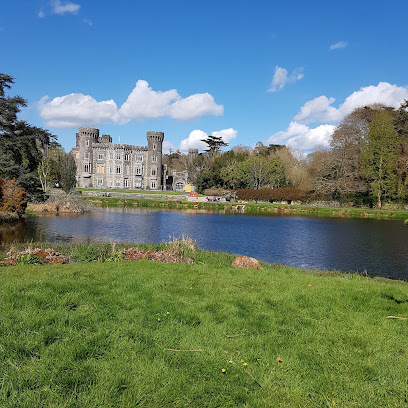
John F Kennedy Arboretum
Experience the beauty of nature at the John F. Kennedy Arboretum, a serene destination filled with diverse flora and stunning landscapes in Co. Wexford.
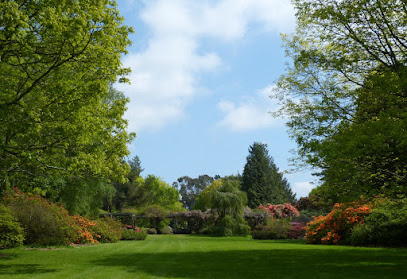
Waterford Castle Hotel & Golf Resort
Discover the enchanting Waterford Castle Hotel & Golf Resort, where history meets luxury in a serene island setting, perfect for relaxation and recreation.
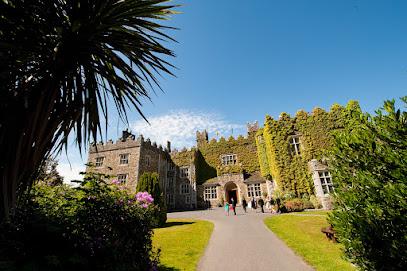
Secret Valley Wildlife Park
Explore the enchanting Secret Valley Wildlife Park in County Wexford, a family-friendly attraction filled with unique wildlife and conservation education.
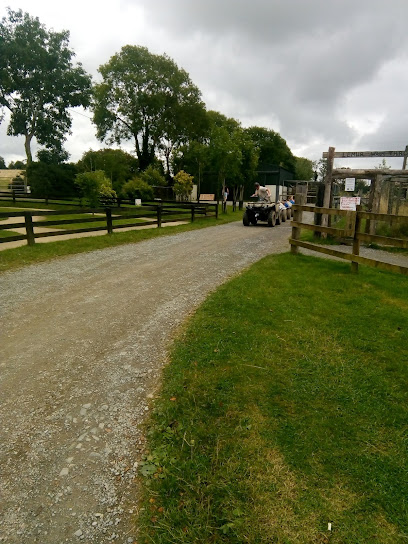
Waterford Treasures: Medieval Museum (Treasures of Medieval Waterford)
Explore the captivating medieval past at Waterford Treasures Museum, a must-visit in the historic Viking Triangle of Waterford, Ireland.
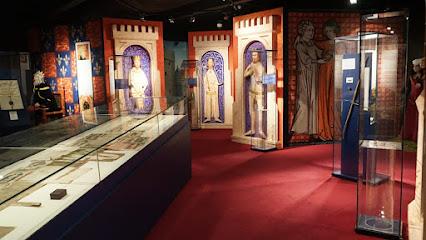
Enniscorthy Castle
Discover the rich history and stunning architecture of Enniscorthy Castle in County Wexford, a must-visit for any traveler exploring Ireland.
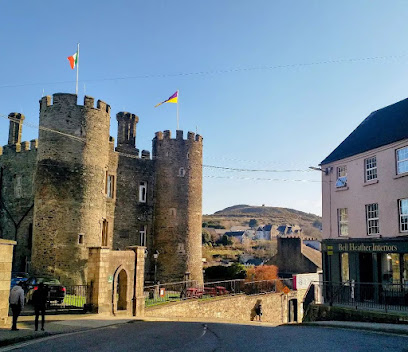
Ballycross Apple Farm
Discover the joy of apple picking and farm fun at Ballycross Apple Farm, a picturesque getaway in Co. Wexford, Ireland.
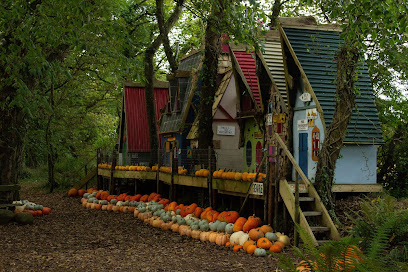
Reginald's Tower
Discover the history and charm of Waterford at Reginald's Tower, a remarkable museum that brings Ireland's past to life.

Blackwater open farm
Experience the joy of nature at Blackwater Open Farm, a family-friendly tourist attraction in Co. Wexford, Ireland, filled with animals, activities, and local delights.
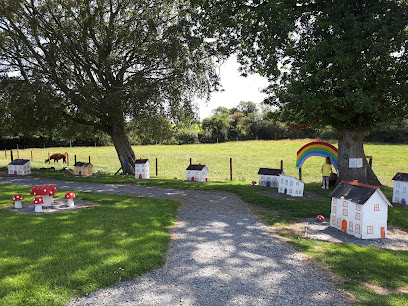
Essential places to dine
Rob's Ranch House
Experience mouthwatering grilled delights at Rob's Ranch House in Wexford - a culinary destination for food lovers!
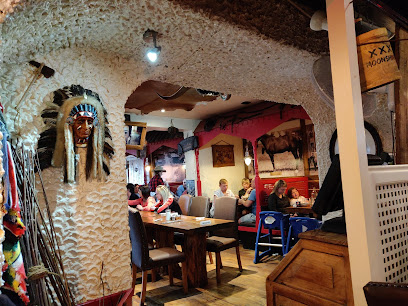
Crown Bar Wexford
Discover the perfect blend of traditional Irish cuisine and innovative cocktails at Crown Bar Wexford - where every meal is a celebration.
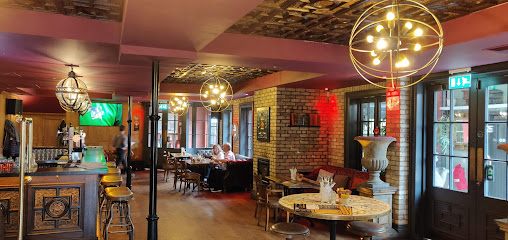
Simon Lambert & Sons
Discover authentic Irish flavors at Simon Lambert & Sons, Wexford's premier gastropub offering delicious food and vibrant local culture.
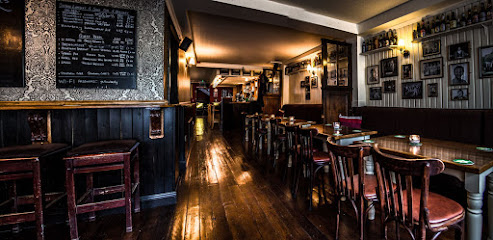
The Red Elephant Restaurant
Experience the best of Asian fusion cuisine at The Red Elephant Restaurant in Wexford - where tradition meets innovation in every dish.
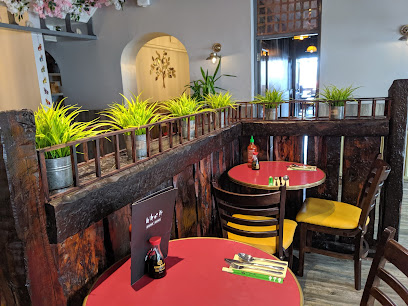
Sharky's Church Lane
Discover authentic Irish fish and chips at Sharky's Church Lane - where fresh seafood meets local flavor in Wexford.
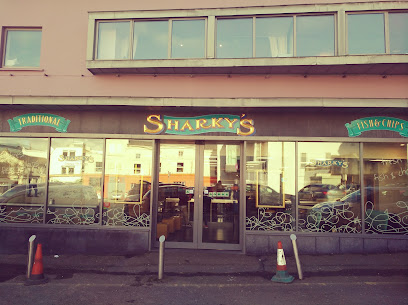
Ramen
Experience exquisite Asian fusion cuisine at Ramen in Wexford – where tradition meets innovation in every delicious bite.
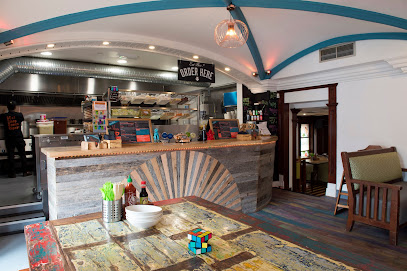
Thomas Moore Tavern
Discover the heart of Wexford at Thomas Moore Tavern—an authentic Irish pub offering delicious food, live music, and vibrant events.
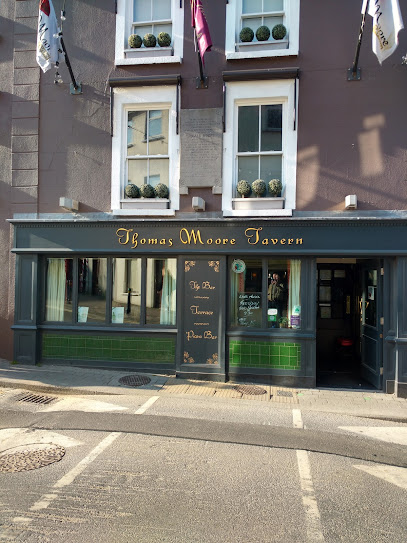
Green Acres Restaurant, Wine Retail, Art Gallery, Coffee Shop & Deli
Experience fine dining, exquisite wines, and local art at Green Acres Restaurant in Wexford - where taste meets culture.
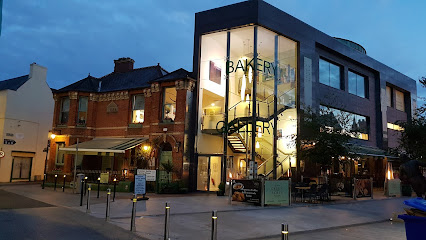
Charred
Discover Charred in Wexford – where grilled burgers meet comfort and flavor in a lively fast food setting.
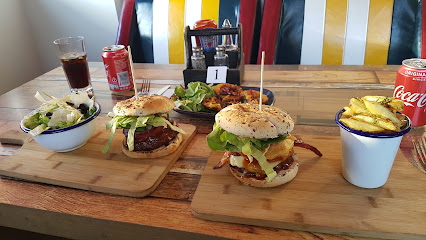
Westgate Design
Discover the fusion of culinary delights and local craftsmanship at Westgate Design in Wexford - where every meal tells a story.
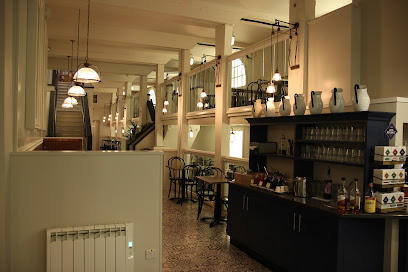
Cappuccinos
Discover the cozy charm of Cappuccinos in Wexford - your go-to spot for delightful breakfasts and aromatic coffees.
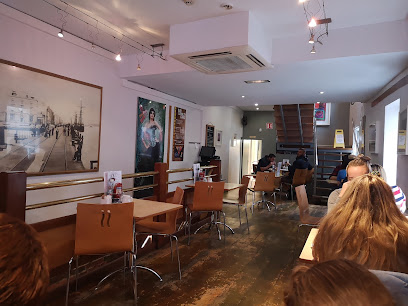
Mi Asian Street Food
Experience the vibrant flavors of Asia at Mi Asian Street Food - where tradition meets modernity in every delicious bite.
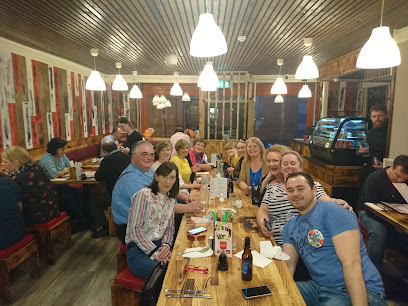
10 West Bistro & Cocktail Lounge - Restaurant Wexford
Experience exquisite Irish and European cuisine at 10 West Bistro & Cocktail Lounge in Wexford – where every meal is a celebration.
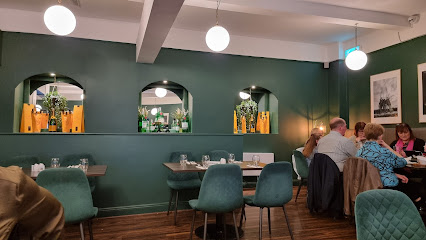
Frank's Place 1860
Discover Frank's Place 1860 in Wexford – where culinary excellence meets inviting ambiance for an unforgettable dining experience.
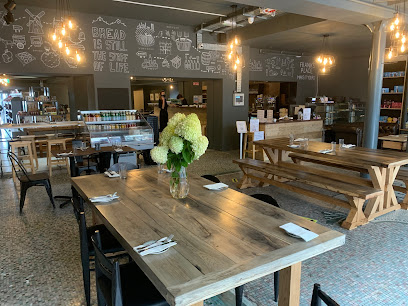
Joannes Cafe
Discover Joannes Cafe in Wexford: A culinary haven offering fresh local dishes and warm Irish hospitality amidst charming surroundings.
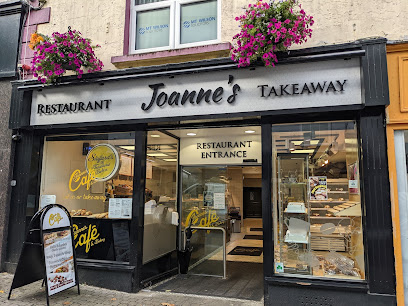
Markets, malls and hidden boutiques
Penneys
Explore affordable fashion at Penneys in Wexford, where style meets value in a vibrant shopping experience.
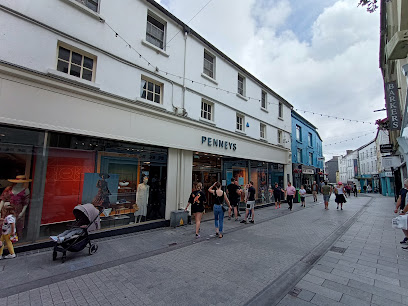
Dunnes Stores Redmond Square
Explore Dunnes Stores Redmond Square in Wexford, a vibrant shopping destination offering quality clothing and fresh groceries for every traveler.
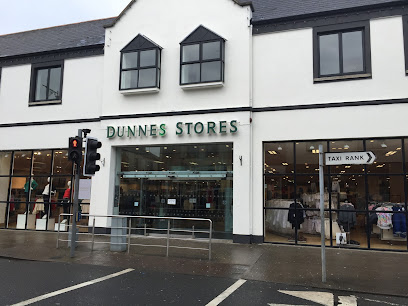
Home Store + More
Explore Home Store + More in Wexford for a diverse selection of home goods, stylish decor, and practical items that enhance your living space.

TK Maxx
Explore an eclectic mix of fashion, homeware, and unique finds at TK Maxx in Wexford, where great style meets unbeatable prices.
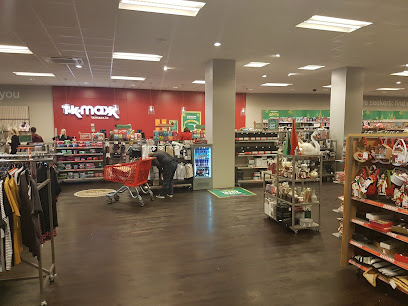
Shaws Department Stores Wexford
Explore Shaws Department Stores in Wexford for a unique shopping experience featuring local and international brands in a charming atmosphere.
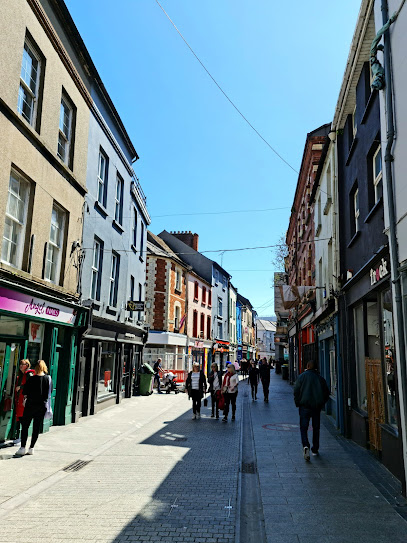
Westgate Design
Experience the perfect blend of delicious cuisine and unique crafts at Westgate Design, Wexford’s hidden gem for food lovers and art enthusiasts.
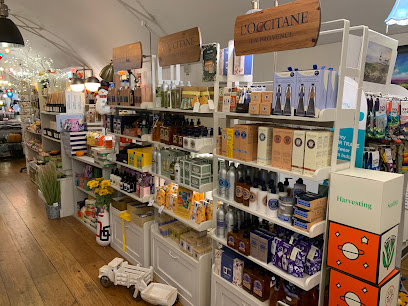
MrPRICE Wexford
Explore unbeatable deals at MrPRICE Wexford, your ultimate discount store for shopping essentials and more.
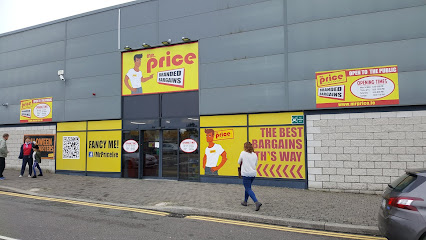
Ken Black - Wexford
Explore Ken Black in Wexford, where every toy sparks joy and imagination for children of all ages. A must-visit for families!
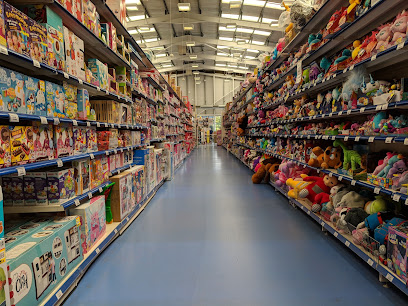
Dealz
Discover unbeatable bargains at Dealz in Wexford, your go-to destination for discount shopping on clothing, home essentials, and more.
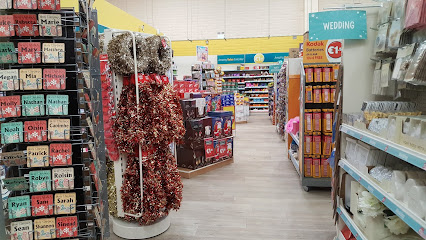
Red Books
Experience the enchanting world of books at Red Books in Wexford, where every shelf invites exploration and discovery.
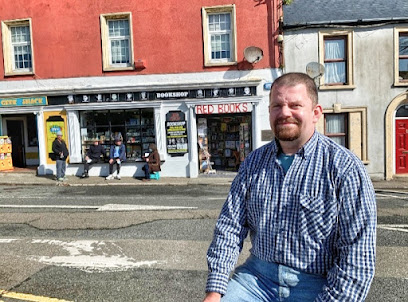
Hore's Stores
Explore Hore's Stores in Wexford for a delightful shopping experience featuring clothing for all ages and styles.
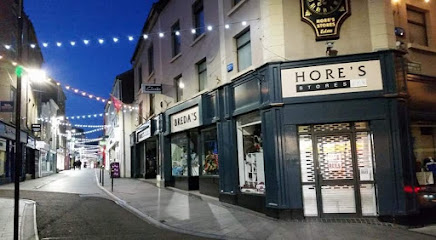
Regatta Great Outdoors
Discover top-quality outdoor clothing and gear at Regatta Great Outdoors in Wexford, perfect for all your adventure needs.
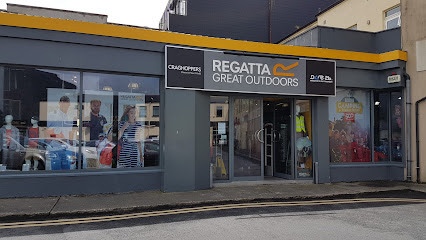
Mountain Warehouse Wexford
Discover top-quality outdoor gear at Mountain Warehouse Wexford, the ultimate destination for adventure seekers in the heart of Ireland.
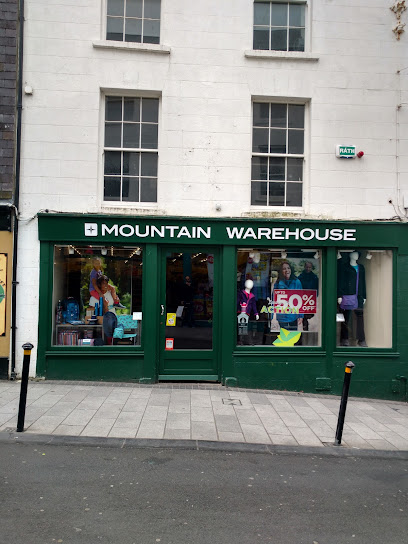
Homesavers
Explore Homesavers in Wexford for affordable home goods, stylish decor, and practical essentials, perfect for tourists looking to enhance their living spaces.
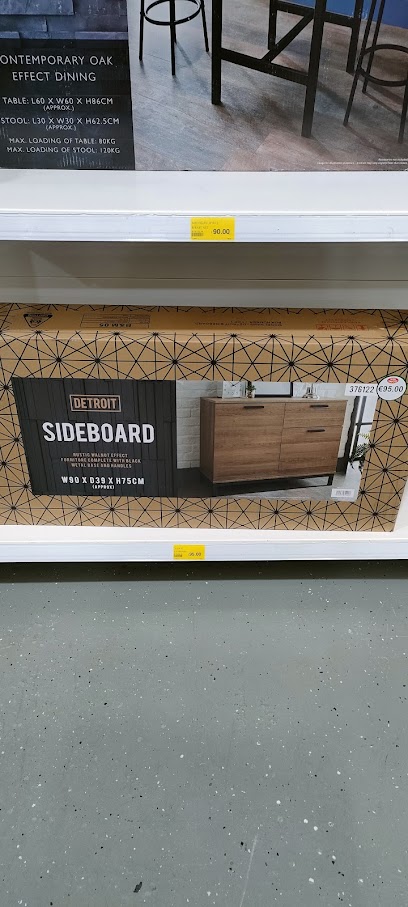
Crafty
Explore Crafty in Wexford, a vibrant craft store offering a vast selection of yarn, knitting supplies, and a creative community for all skill levels.
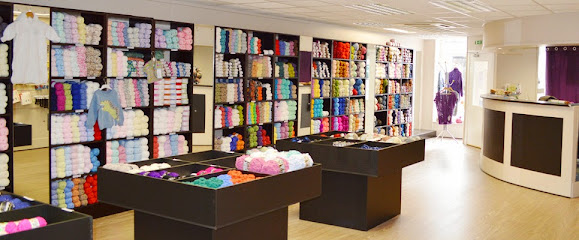
Essential bars & hidden hideouts
The Sky and The Ground
Experience the vibrant atmosphere of The Sky and The Ground, where delicious food, refreshing drinks, and live music unite in Wexford.
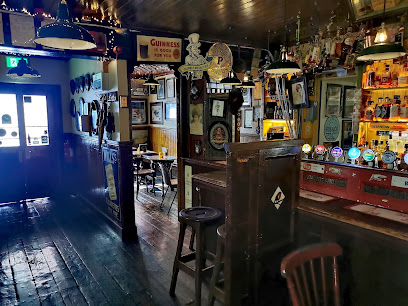
Crown Bar Wexford
Experience the vibrant fusion of cocktails and cuisine at Crown Bar Wexford, where every visit promises unforgettable flavors and lively ambiance.
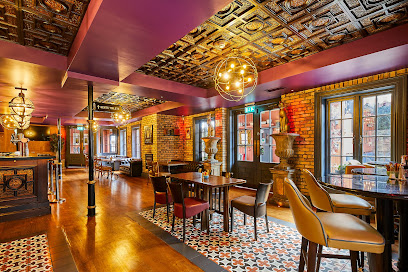
Simon Lambert & Sons
Experience the heart of Irish hospitality at Simon Lambert & Sons, a gastropub blending tradition with modern culinary delights in Wexford.
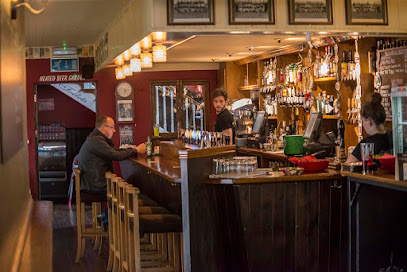
Mackens The Cape Bar, The Undertakers
Discover the authentic charm of Mackens The Cape Bar in Wexford, where friendly service meets a vibrant pub atmosphere and delightful drinks.
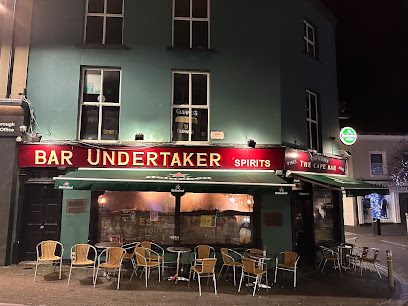
Maggie May's Bar
Discover the heart of Wexford at Maggie May's Bar, where local drinks, hearty food, and friendly faces create an unforgettable experience.
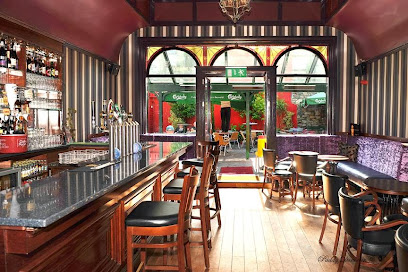
Thomas Moore Tavern
Discover the vibrant atmosphere of Thomas Moore Tavern in Wexford, where traditional Irish hospitality meets live music and delicious cuisine.
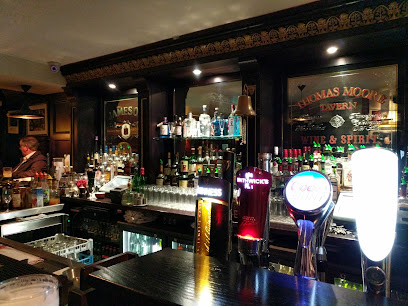
Bugler Doyles Bar & Guest Accommodation
Discover the heart of Wexford at Bugler Doyles Bar & Guest Accommodation - where traditional Irish warmth meets modern comfort.

T Morris Bar Wexford
Discover the heart of Wexford at T Morris Bar, where traditional Irish hospitality meets a lively atmosphere and delicious local fare.
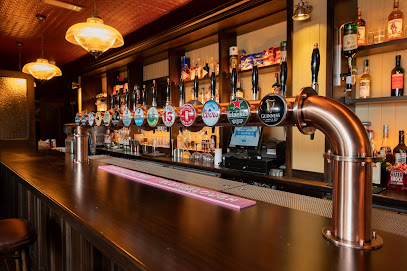
10 West Bistro & Cocktail Lounge - Restaurant Wexford
Savor the finest Irish and European cuisine in a stylish setting at 10 West Bistro & Cocktail Lounge, Wexford's premier dining destination.
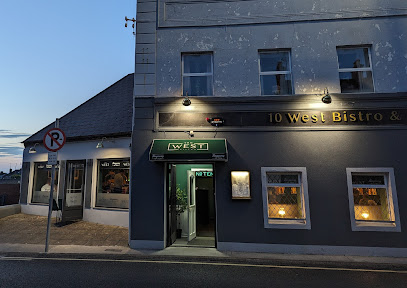
The Centenary Stores
Experience the Heart of Wexford at The Centenary Stores - A Lively Pub with Locally Crafted Beverages and Warm Hospitality.
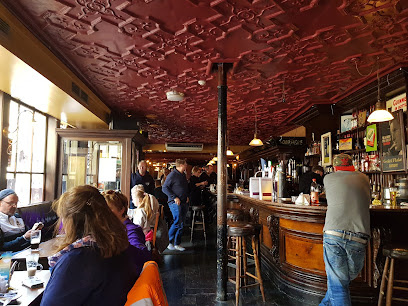
The Swan Bar and Cafe
Discover the charm of The Swan Bar and Cafe in Wexford, where great drinks, delicious food, and a lively atmosphere await you.
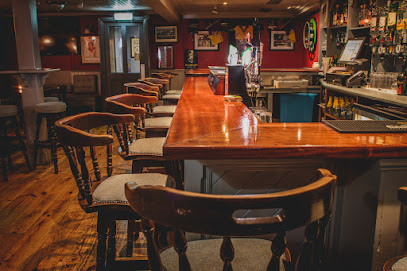
Billy Kelly's
Discover the heart of Wexford at Billy Kelly's Pub, where traditional Irish hospitality meets a lively atmosphere and great drinks.
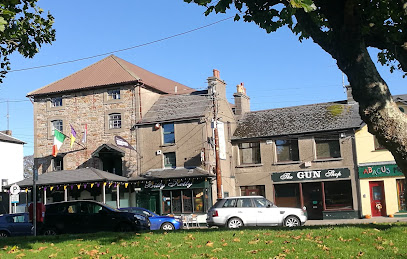
The Foggy Dew Inn
Discover the vibrant atmosphere and local flavors at The Foggy Dew Inn in Wexford, a perfect blend of bar, bed & breakfast, and entertainment.
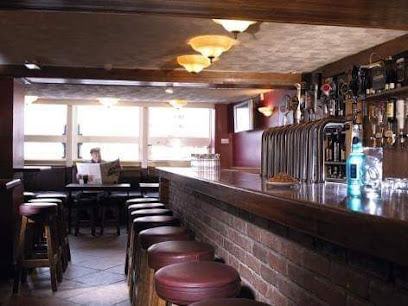
The John Barry Bar
Discover the charm of Wexford at The John Barry Bar, a cozy Irish pub offering local brews and a taste of authentic Irish culture.
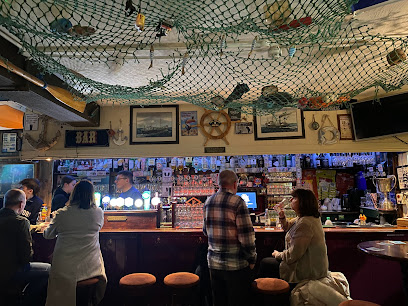
Local Phrases
-
- HelloDia duit
[dee-uh gwit] - GoodbyeSlán
[slawn] - YesTá
[taw] - NoNíl
[neel] - Please/You're welcomeLe do thoil
[leh duh hull] - Thank youGo raibh maith agat
[guh rev mah ag-ut] - Excuse me/SorryÓisín orm
[oh-sheen or-um] - How are you?Conas atá tú?
[kun-us uh-taw too] - Fine. And you?Tá mé go maith. Agus tú?
[taw may guh mah. ah-guhs too] - Do you speak English?An bhfuil Béarla agat?
[ahn will bay-rla ah-gut] - I don't understandNí thuigim
[neel hug-im]
- HelloDia duit
-
- I'd like to see the menu, pleaseBa mhaith liom an billeog a fheiceáil, le do thoil
[ba wah lyum ahn bill-ogue ah ek-awl, leh duh hull] - I don't eat meatNí ithim feoil
[neel ih-him foh-il] - Cheers!Sláinte!
[slahn-cha] - I would like to pay, pleaseBa mhaith liom íoc, le do thoil
[ba wah lyum ee-uk, leh duh hull]
- I'd like to see the menu, pleaseBa mhaith liom an billeog a fheiceáil, le do thoil
-
- Help!Cabhair!
[cah-wir] - Go away!Imigh uaim!
[im-eeh oom] - Call the Police!Glan an Garda!
[glahn ahn gar-dah] - Call a doctor!Glan dochtúir!
[glahn dohk-too-ir] - I'm lostTá mé caillte
[taw may kahl-cheh] - I'm illTá mé tinn
[taw may chin]
- Help!Cabhair!
-
- I'd like to buy...Ba mhaith liom ceannach...
[ba wah lyum can-uk] - I'm just lookingNíl mé ach ag féachaint
[neel may ahk egg fay-uk-ent] - How much is it?Cé mhéad é?
[kay vayd ay] - That's too expensiveTá sé ró-dhaor
[taw shay row-gweer] - Can you lower the price?An féidir leat an praghas a ísliú?
[ahn fay-dur lat ahn prah-gus ah eesh-loo]
- I'd like to buy...Ba mhaith liom ceannach...
-
- What time is it?Cén t-am é?
[kayn tahm ay] - It's one o'clockTá sé a haon a chlog
[taw shay ah hayn ah khlog] - Half past (10)Leathuair tar éis a deich
[lah-hoo-ir tar aysh ah deh] - MorningMaidin
[mad-in] - AfternoonTráthnóna
[traw-noh-nah] - EveningTráthnóna
[traw-noh-nah] - YesterdayInné
[in-ay] - TodayInniu
[in-yoo] - TomorrowAmárach
[ah-ma-rahk] - 1Aon
[ayn] - 2Dó
[doh] - 3Trí
[tree] - 4Ceathair
[cah-her] - 5Cúig
[koo-ig] - 6Sé
[shay] - 7Seacht
[shahkht] - 8Ocht
[ukht] - 9Naoi
[nee] - 10Deich
[deh]
- What time is it?Cén t-am é?
-
- Where's a/the...?Cá bhfuil...?
[kaw will] - What's the address?Cad é an seoladh?
[kod ay ahn shoh-lah] - Can you show me (on the map)?An bhfuil tú in ann (ar an léarscáil)?
[ahn will too in on (ahr on layr-skawl)] - When's the next (bus)?Cén uair an chéad (bus)?
[kayn oor ahn khayd (bus)] - A ticket (to ....)Ticéad (go dtí ....)
[tick-ayd (guh dee)]
- Where's a/the...?Cá bhfuil...?
History of Wexford
-
Wexford's history dates back to the Viking era, around 800 AD, when Norse invaders established a settlement called 'Veisafjǫrðr,' meaning 'inlet of the mud flats.' This settlement laid the groundwork for what would become the modern town of Wexford. The Vikings fortified the area and established trade routes that significantly influenced the region's economy and culture.
-
In 1169, Wexford was one of the first areas in Ireland to be invaded by the Normans. Led by Richard de Clare, also known as Strongbow, the Normans took control of Wexford and ushered in a new era of feudalism. They built several castles and fortified towns, including the iconic Selskar Abbey, which stands to this day as a testament to their architectural influence.
-
The 17th century brought turmoil to Wexford when Oliver Cromwell's forces attacked the town in 1649. Cromwell's siege was brutal, leading to significant loss of life and the destruction of many buildings. This event had lasting effects on the region, both in terms of its physical landscape and its social structure.
-
The United Irishmen Rebellion of 1798 was a significant event in Wexford's history. The town became a focal point for the uprising against British rule. Key battles took place at Vinegar Hill and New Ross, where Irish rebels fought valiantly but ultimately faced defeat. The rebellion left an indelible mark on the local community and is commemorated through various monuments and annual events.
-
The mid-19th century Great Famine had a devastating impact on Wexford, as it did on the rest of Ireland. The potato blight led to widespread starvation and emigration. Many families left Wexford for new lives in America, Canada, and Australia. The famine's legacy is still felt today, with numerous memorials and museums dedicated to this dark chapter in history.
-
In the late 19th and early 20th centuries, Wexford experienced a cultural renaissance. The town became a hub for Irish literature, music, and art. The Wexford Opera Festival, founded in 1951, is a world-renowned event that attracts talent and visitors from around the globe. This period saw a revival of traditional Irish culture and a renewed sense of local identity.
-
In recent decades, Wexford has seen significant modernization while retaining its historical charm. The town has invested in infrastructure, tourism, and cultural preservation. Modern Wexford is a vibrant community that celebrates its rich history while looking towards a prosperous future. The Quayfront development and the preservation of historical landmarks like the Irish National Heritage Park are prime examples of this balance.
Wexford Essentials
-
Wexford is located in the southeast of Ireland. The nearest international airport is Dublin Airport, approximately 150 kilometers away. From Dublin, you can take a direct bus or train to Wexford, with journeys typically taking around 2 to 3 hours. Alternatively, you can rent a car and drive, which allows for scenic routes through the Irish countryside.
-
Wexford town itself is quite walkable, with most attractions within walking distance. For longer distances, local buses and taxis are readily available. Bus Éireann operates services connecting Wexford to nearby towns and cities. Car rental services are also an option for those looking to explore the surrounding areas at their own pace.
-
The official currency in Ireland is the Euro (€). Credit and debit cards are widely accepted in hotels, restaurants, and shops. However, it is advisable to carry some cash, especially when visiting smaller establishments or rural areas. ATMs are widely available throughout Wexford.
-
Wexford is generally a safe destination for tourists. As with any travel destination, it is advisable to take standard precautions such as avoiding walking alone at night in unfamiliar areas and keeping an eye on your belongings in crowded places. There are no specific high-crime areas targeting tourists in Wexford.
-
In case of an emergency, dial 112 or 999 for immediate assistance. There are local police stations and medical facilities available in Wexford. It is recommended to have travel insurance that covers medical emergencies. Pharmacies are available in the town for minor health issues and over-the-counter medications.
-
Fashion: Do dress comfortably and in layers, as the weather can change quickly. Avoid overly casual attire when dining in upscale restaurants. Religion: Do respect local customs, especially when visiting churches. Public Transport: Do be respectful to fellow passengers and offer your seat to elderly or disabled individuals. Don't eat or drink on public transport. Greetings: Do greet people with a friendly 'hello' or 'hi'. Handshakes are common in more formal settings. Eating & Drinking: Do try local dishes and enjoy the fresh seafood. Don't rush your meals; dining is often a leisurely and social activity.
-
To experience Wexford like a local, visit the Wexford Farmers' Market held on Fridays, where you can buy fresh produce and local crafts. Engage with locals, who are known for their friendliness and willingness to share stories about the town's history and culture. Don’t miss the annual Wexford Festival Opera if you're visiting in October, a highlight of the local cultural calendar. For a unique experience, take a stroll along the Wexford Harbour and enjoy the stunning views.
Trending Landmark in Wexford
-
Hook Lighthouse
-
Irish National Heritage Park
-
Dunbrody Famine Ship Experience
-
Wells House & Gardens
-
Johnstown Castle Estate, Museum & Gardens
-
John F Kennedy Arboretum
-
National Opera House
-
Tintern Abbey
-
Simon Lambert & Sons
-
Enniscorthy Castle
-
The Raven Nature Reserve
-
Ramen
-
Thomas Moore Tavern
-
Johnstown Castle
-
The Kennedy Homestead
Nearby Cities to Wexford
-
Things To Do in Waterford
-
Things To Do in Kilkenny
-
Things To Do in Bray
-
Things To Do in Dublin
-
Things To Do in Cork
-
Things To Do in Limerick
-
Things To Do in Drogheda
-
Things To Do in Athlone
-
Things To Do in Kinsale
-
Things To Do in Ennis
-
Things To Do in Galway
-
Things To Do in Salthill
-
Things To Do in Killarney
-
Things To Do in Tralee
-
Things To Do in Port St Mary













